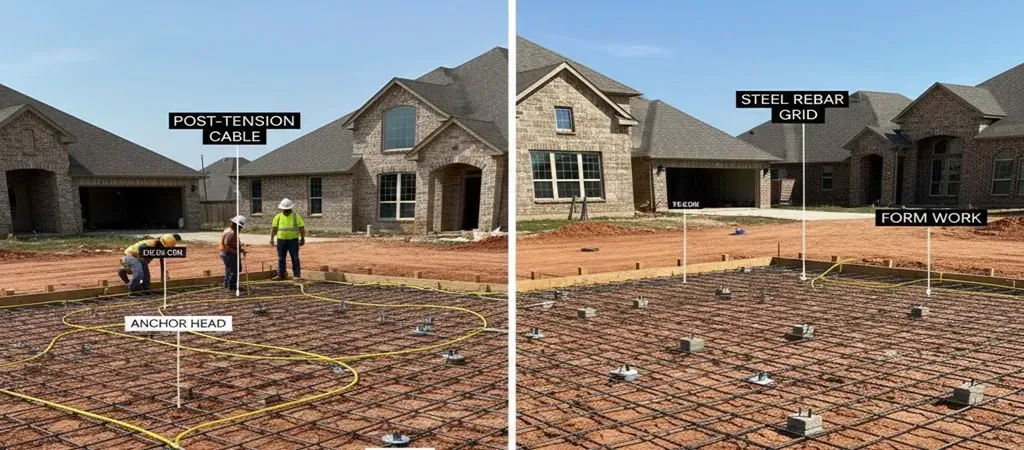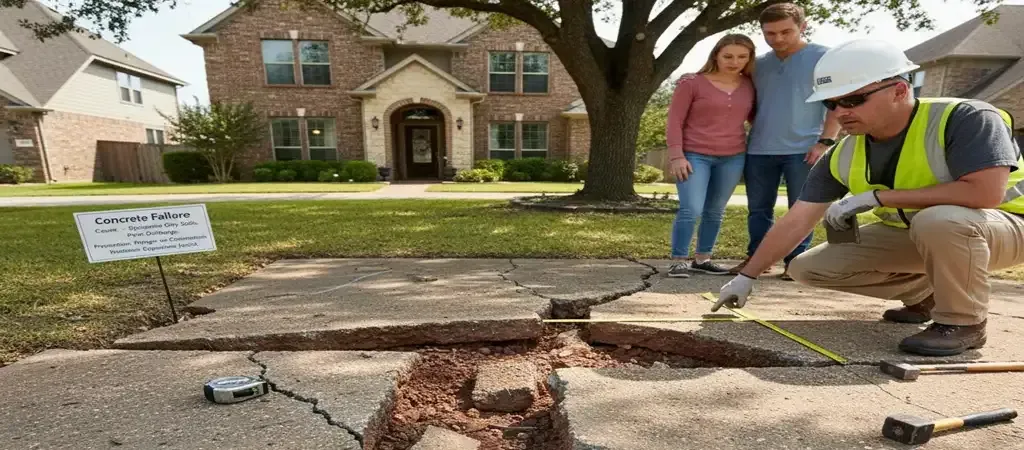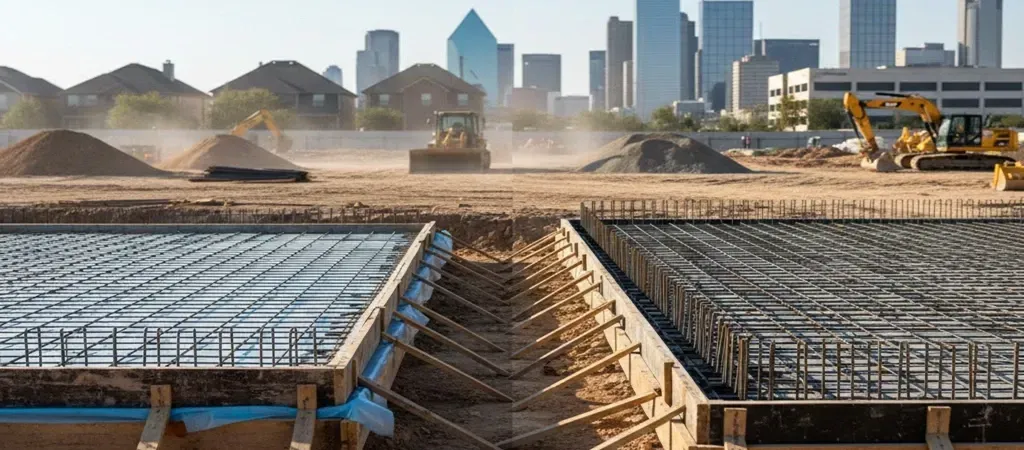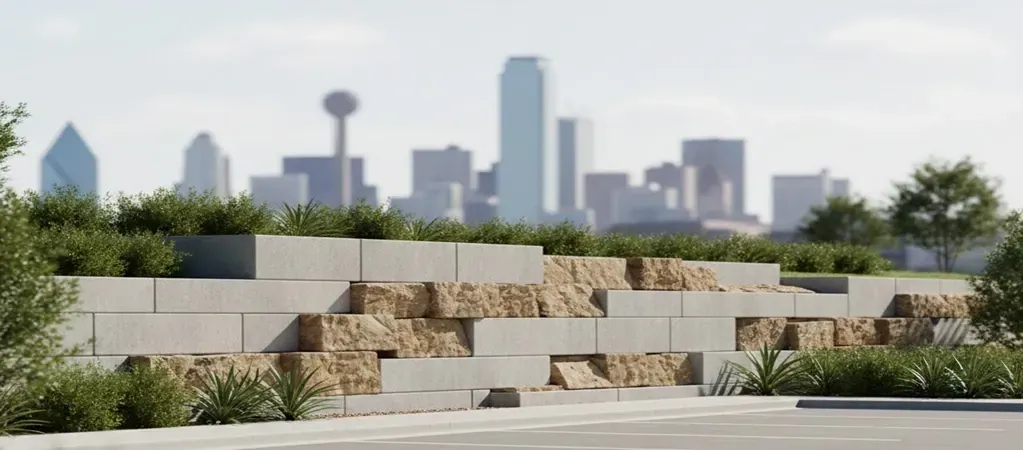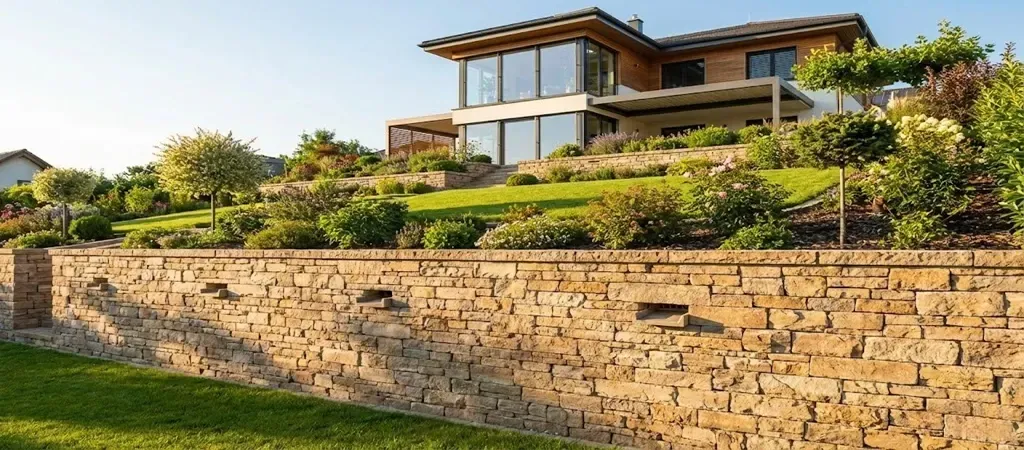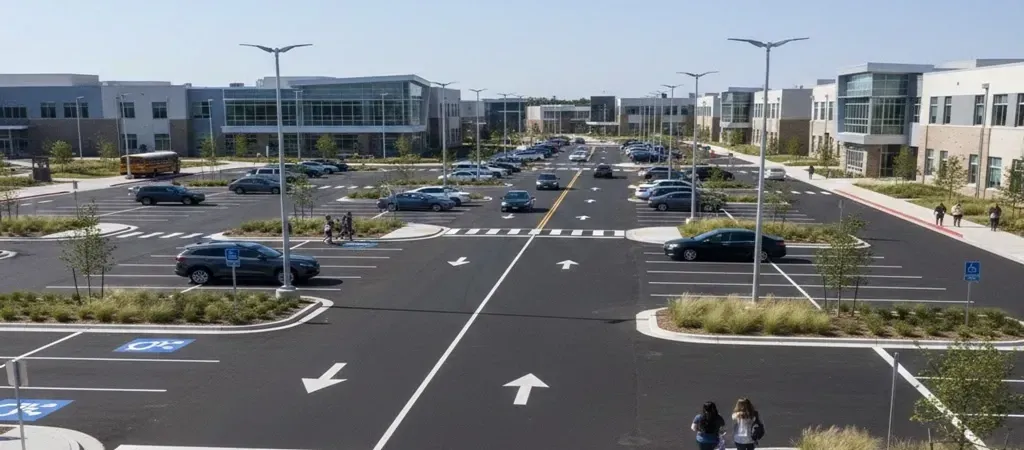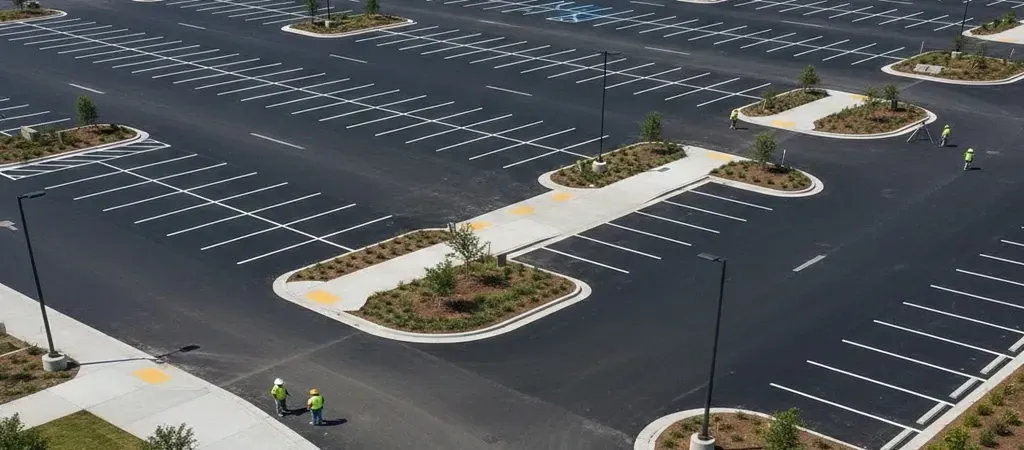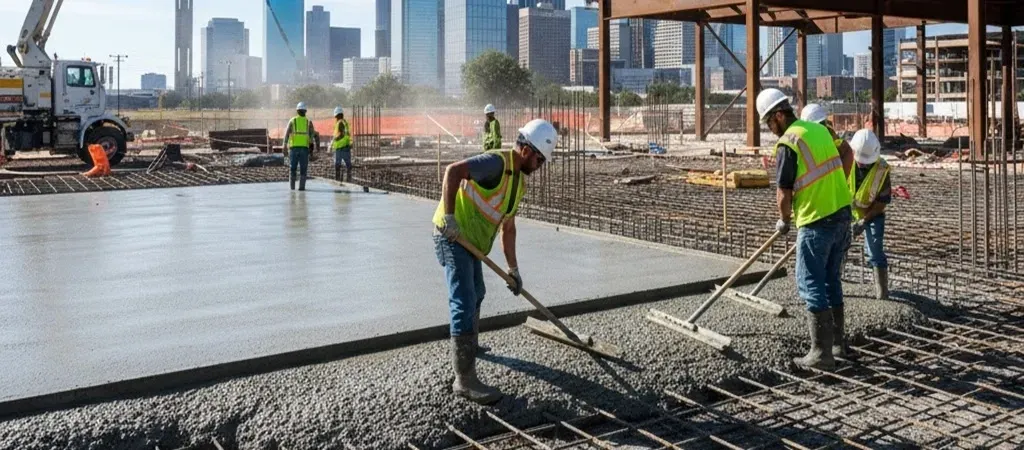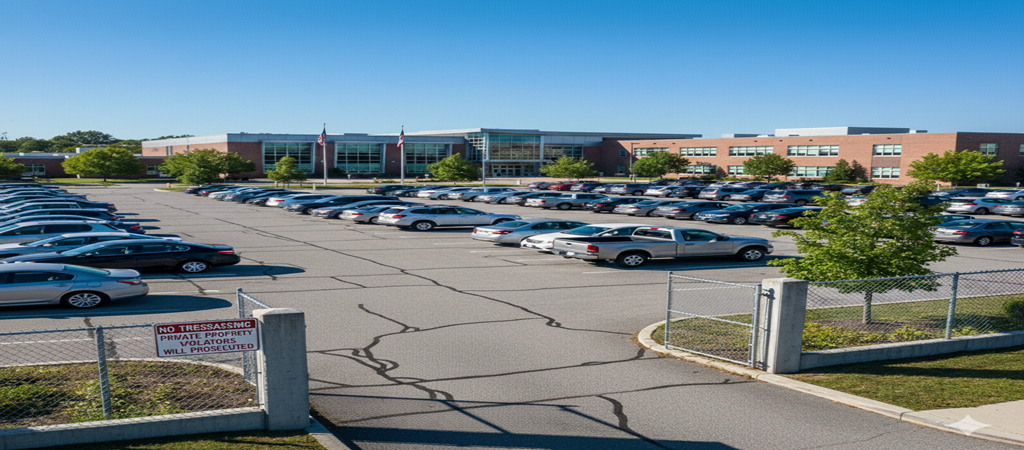How to Properly Install Flatwork in Dallas with Expert Concrete Guidance
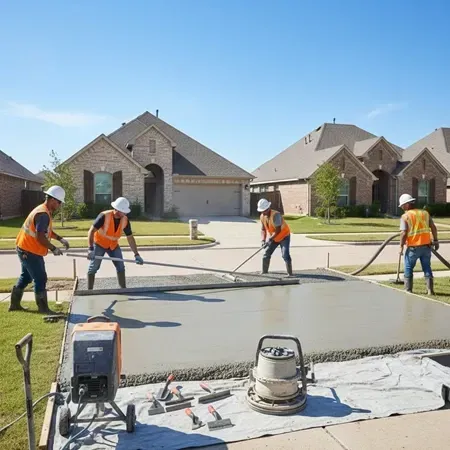
Have you ever wondered why so many concrete driveways in Dallas start cracking after just a few years?
The answer isn’t always bad luck or poor materials. Often, it lies in how the flatwork is installed, which requires precision suited to Texas conditions. The soil, weather, and pace of construction here are unique, and skipping a single detail can lead to problems that cost thousands to repair later. Homeowners planning a patio and contractors handling
commercial slabs can make a big difference in results by using the right techniques.
Understanding the Ground Beneath Your Slab
Before a single batch of concrete is poured, the soil must be prepared correctly. Dallas sits on expansive clay soil that swells when wet and shrinks when dry. This constant movement is the biggest reason for cracking and uneven surfaces.
To prevent shifting, professionals begin by excavating weak or organic soil and replacing it with compacted crushed limestone or road base. The layer underneath your flatwork acts as its foundation, so it must be level and stable. Proper compaction helps distribute weight evenly and prevents the concrete from flexing as the ground changes through the seasons.
Challenges are part of every concrete project, but they don’t have to slow you down. Explore expert tips for overcoming installation problems and creating a driveway that lasts.
Selecting the Right Concrete Mix
Choosing the right mix for Dallas conditions requires experience. The area’s temperature swings and unpredictable storms can stress even well-poured slabs. Concrete strength is measured in PSI, and most residential projects use mixes between 3,500 and 4,000 PSI, while heavy-duty or commercial work may need 5,000 PSI or higher.
A balanced mix also depends on water content. Adding too much water makes the concrete easier to pour but weaker once cured. Skilled finishers know how to achieve the right consistency so that the mix flows properly without sacrificing strength. Air-entrainment and well-graded aggregate also help the slab handle expansion and contraction during the extreme Texas heat.
From durability to finish, the mix matters. Learn expert strategies for choosing and using concrete to ensure your driveway stands the test of time.
Reinforcement and Stability
Concrete is strong in compression but weak in tension. That means without reinforcement, it can still crack under pressure. In Dallas, most contractors use rebar grids or wire mesh to add tensile strength and prevent movement across joints.
Placement is just as important as the materials themselves. Reinforcement should sit in the middle third of the slab, not rest directly on the soil. To achieve this, professionals use chairs or supports that hold the steel in position before and during the pour. When done correctly, reinforcement keeps cracks tight and prevents the slab from breaking apart over time.
Concrete may look solid, but its true strength comes from careful planning and reinforcement. Discover key reinforcement strategies that help concrete withstand the test of time.
Setting Proper Forms and Slope
Formwork defines the slab’s shape and directs how water will drain once it’s complete. Concrete should never be perfectly level. It should slope slightly away from buildings and toward open areas. In Dallas, contractors typically allow one-eighth inch of fall per foot to ensure that rainwater doesn’t pool near foundations.
Accurate forms also prevent wasted material and uneven edges. Each board must be staked firmly and checked with a level. Once forms are in place, contractors double-check all measurements before the first load of concrete arrives.
Placing and Finishing Concrete Correctly
Concrete sets quickly in the Texas heat, which is why timing and coordination matter. Once poured, the surface must be leveled, compacted, and smoothed in a specific sequence.
First, workers strike off the excess concrete to create the proper height. Next comes bull floating, which pushes aggregate down and brings fine cement paste to the surface. Grooves for control joints are added before the slab hardens, allowing it to crack in predictable lines instead of random spots.
Finishing should be done carefully to avoid trapping air or bringing too much water to the surface. A well-timed finish leaves a smooth, durable surface that can handle daily wear without scaling or flaking.
The Importance of Proper Curing
Many homeowners assume the work ends when the surface looks dry, but curing is one of the most important steps in the process. Curing allows moisture to remain in the slab long enough for the cement to reach full strength.
In Dallas’s hot and windy conditions, concrete can dry too fast, leading to shrinkage cracks. Contractors often use curing compounds, plastic sheeting, or wet coverings to retain moisture for at least seven days. A properly cured slab not only reaches its designed PSI but also resists surface dusting, discoloration, and early aging.
Planning for Expansion and Movement
All concrete moves as temperatures change. To manage that movement, professionals install expansion and control joints at regular intervals. Control joints are shallow cuts that guide natural cracking along straight lines, while expansion joints use flexible filler to separate the slab from nearby structures.
Without these joints, pressure builds and cracks appear unpredictably. Planning where and how to place them is part of the technical expertise that ensures long-term performance.
Finishing Touches and Surface Options
Flatwork in Dallas can serve both functional and decorative purposes. Driveways often use broom finishes for traction, while patios may feature stamped or stained designs that resemble stone or tile. Regardless of the style, it’s important to apply a high-quality, non-slip sealer once the surface has cured.
Sealant protects against oil stains, weathering, and moisture absorption. However, over-sealing can cause issues such as trapped vapor or peeling, so applying the right amount at the right time is essential.
Adapting to Dallas Weather
The Dallas climate demands planning around the calendar. In summer, concrete should be poured early in the morning when temperatures are lower. During winter, blankets or insulating covers keep the surface warm enough for proper hydration.
Skilled contractors check weather forecasts closely before scheduling pours. Pouring during a storm or heat wave can ruin even the best-prepared mix. Managing these factors separates seasoned professionals from amateurs.
Maintaining Your Concrete Investment
Flatwork may be permanent, but maintenance still matters. Avoid driving heavy vehicles on new slabs for the first week, and allow at least 28 days before applying high loads. Reseal every few years, clean spills promptly, and check for cracks or gaps that might allow water intrusion.
Concrete that’s installed and maintained properly can last for decades. When neglected, it will start showing wear much sooner, especially under the Texas sun. Discover why consistent concrete maintenance matters for durability, safety, and curb appeal in Dallas.
Final Insight
Installing concrete flatwork in Dallas demands experience, patience, and knowledge of local soil and weather conditions. Every phase, from preparation to curing, affects how the finished slab will perform over time. Those who follow the right process avoid costly repairs and enjoy surfaces that stay level, strong, and attractive year after year.
With the right planning and expert guidance, concrete becomes a lasting investment in the strength and beauty of your property. Reach out to professionals who can guide you through every step of your project with precision and care.
